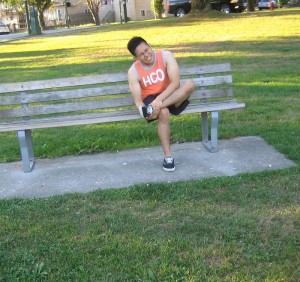Overview Of Muscle Strain
- There’s major swelling, throbbing, fever, blood loss, or open cuts.
- The casualty heard a “popping” sound or is unable to walk, and there is no other way that they can securely and quickly be taken to a hospital.
- Manage Inflammation and Avoid Further Damage With PRICE
- Protect by using an elastic dressing, sling, or splint.
- Rest the muscles for about 24 hours.
- Ice right away, and continue to ice the area for 15 minutes each hour, for 3 days.
- Compress by softly covering with an elastic dressing. (Don’t wrap forcefully.)
- Elevate the injured region above the casualty’s heart level, if possible, for at least one day.
- Control Pain and Swelling
The suggestion for muscle strains can be different. Depending on how severe your injury is, you may be instructed to keep your injured muscle immobile for the first few days.
- Take an OTC pain medication like aspirin or ibuprofen. Do not offer aspirin to any person beneath the age of 18.
- Follow-Up
- Lift and ice the region every 3 hours after the first 24 hours.
- When to Phone a Doctor
Call a doctor if:
- After 48 hours, the casualty can’t move or put any force on the affected region.
- The injured region is cool, clammy or changes color.
- There is irritation or lack of sensation.
- There is recent or severe pain.
- The casualty needs guidance on how to restart normal exercises.
Advice For Strained Muscles
The suggestion for muscle strains can be different. Depending on how severe your injury is, you may be instructed to keep your injured muscle immobile for the first few days. Your doctor might organize you a brace or splint, to keep it as still as possible.
The purpose of keeping the muscle still is to let it start healing, so you can shift it without damaging it again.
Avoiding Injury
For the first 3 days after you have strained a muscle, you should keep away from harm. This means you should keep away from:
- Heat– Like warm baths or saunas
- Alcohol– Consuming alcohol will add to the bleeding and inflammation, and will result in slow healing.
- Running– Any other type of exercise that could cause extra damage.
- Massage– Might increase bleeding and inflammation.

Strain can happen even during normal activities when the person falls, twists or makes a sudden move that their body is not used to. Fortunately there are some ways in which a remedial massage can help if you experience strains.